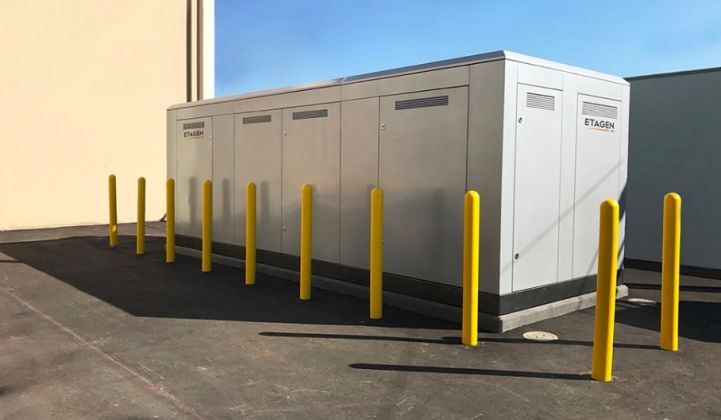A new type of ultra-efficient engine has been attracting the attention of several big-name investors.
The startup EtaGen, founded in 2010, announced recently that it has raised an $83 million Series C round of funding, including from power company AEP, and the venture arms of oil giant Statoil and energy company Centrica. These new strategic investors join EtaGen's existing investors, Microsoft co-founder Bill Gates and Vinod Khosla’s venture firm Khosla Ventures. The company has now raised $133 million, according to a press release.
That a relatively young tech firm has been able to attract the interest of such high-profile investors is impressive. Khosla Ventures and Bill Gates have a long history of putting money into cleantech startups together, from biofuel companies to battery firms. They’re also investing in Breakthrough Energy Ventures, a billion-dollar energy fund focusing on early-stage companies.
EtaGen’s engines aren’t meant to be used in cars (yet), but rather to generate onsite power for companies, buildings and microgrids. EtaGen calls its device a “linear generator,” and it appears to be a new type of free-piston engine that can operate at low temperatures, with high compression and expansion ratios.
While EtaGen declined to comment beyond its press release, a profile of co-founder and CEO Shannon Miller in MIT Tech Review from 2012 sheds a bit of light on the technology and the company. Miller -- who was a recipient of the “35 Innovators Under 35” and is an engineer -- told the publication that the engine can use 25 percent less fuel (like diesel or natural gas) compared to conventional gas-powered generators.
Miller -- and her co-founders Matt Svrcek and Adam Simpson -- developed the idea as doctoral researchers at Stanford University. Before Miller started the company, she was a mechanical engineer with Tesla.
A patent search turns up various patents around the technology for free-piston engines. The company’s website describes the tech as using “a low-temperature reaction of air and fuel to drive magnets through copper coils to efficiently produce electricity.”
Investor Khosla Ventures’ website describes the generator as being able to deliver electricity to customers at a lower cost, with higher reliability and a smaller carbon footprint than the power grid.
In the release, Miller says that the technology, after eight years of development, is moving “toward the commercialization stage.” The recent funding round is looking to get them closer to that goal. Khosla Ventures partner Samir Kaul said in the release that the technology has moved beyond “theory” and into a “real product.”
EtaGen says it already has customers in industries including utilities, groceries, banking, retail and telecom, though the release declines to name the customers. The company says it intends sell the units in packages of 250 and 750 kilowatts.
Distributed energy generation and microgrids are rapidly growing industries, and include technologies like rooftop solar panels, batteries, fuel cells and generators. Huge power and construction companies make typical generators, including Caterpillar, Cummins and Kohler.
It’s unclear what the levelized cost of energy would be for EtaGen’s Linear Generator compared with a standard diesel generator or for solar panels.
Miller told the MIT Tech Review that the same engine design could eventually be used as a generator for electric cars like Chevrolet's plug-in hybrid Volt.




